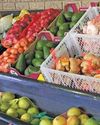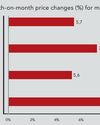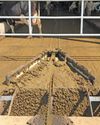
Since the latter part of 2023, hardly a week has gone by without some residents of Johannesburg, South Africa’s commercial capital, losing their water supply. Notices of planned outages from the local water authority are a common occurrence. Unplanned water shutdowns also happen regularly.
The entire city has been affected – shanty towns as well as less affluent and more affluent parts. The Conversation Africa asked geography professor Craig Sheridan, director of the Centre in Water Research and Development at the University of the Witwatersrand, what has gone wrong.
IS THERE SUFFICIENT WATER PROVISION FROM GOVERNMENT?
The water allocation for each province is based on the amount available in the dams (which must also supply our future needs) and the number of people in that province. Currently the Vaal Dam is 70% full.
Rand Water – the area’s bulk water supplier – buys the water from the Department of Water and Sanitation, which will only sell a certain amount to it. Rand Water takes water mainly from the Vaal Dam – the region’s biggest – and treats it to create potable quality. It then sells the water to Johannesburg and Pretoria (and other cities and towns) which are in Gauteng, the smallest of South Africa’s nine provinces and its industrial heartland.
Rand Water is not allowed to supply more than the amount set by the Department of Water and Sanitation. But there is a mismatch between what is allocated by the national government and what is needed on the ground. This is because the national government takes into consideration future needs.
WHY CAN’T NEW DAMS BE BUILT TO SUPPLY MORE WATER?
This story is from the {{IssueName}} edition of {{MagazineName}}.
Start your 7-day Magzter GOLD free trial to access thousands of curated premium stories, and 9,000+ magazines and newspapers.
Already a subscriber ? Sign In
This story is from the {{IssueName}} edition of {{MagazineName}}.
Start your 7-day Magzter GOLD free trial to access thousands of curated premium stories, and 9,000+ magazines and newspapers.
Already a subscriber? Sign In

Agripreneur wins top award for butternut coffee
Bloemfontein-based agripreneur Chantelle de Bruyn has achieved global recognition.

Final fresh produce inquiry pins low level of transformation on farming environment
The Competition Commission released its final report on the Fresh Produce Market Inquiry in mid-January, maintaining that transformation in the industry was being impeded by a lack of support for emerging farmers.

Illegal fishing in Australia reveals market gap for farmed sea cucumber
Illegal fishing practices in Australia have revealed a large market opportunity for sea cucumber farming.

An introduction to the Ford Ranger Tremor
In December 2024, the CAR magazine team received the Ford Ranger Tremor to accompany them through the festive season and into the new year. Oliver Keohane looks at what the Tremor is all about.

A farmer's experience with bush encroachment
Farmer David Addenbrooke has worked in the Zimbabwean beef industry for around four decades. Here, he relates his experience with bush encroachment and offers farmers some advice on battling this scourge.

Good rains boost SA's summer grain crop prospects
This week, Absa AgriBusiness analyses several market dynamics and shares its expectations for local grain and oilseed prices over the coming months.

A self-help tool for getting young people engaged in agriculture
The active engagement of the youth in agriculture is pivotal to the sustainability and growth of the sector. Empowering them with the necessary support is key to nurturing future farmers who are equipped to overcome future challenges like the effects of climate change.Dr Primrose Madende, researcher at the Department of Agricultural Economics at the University of the Free State

Rallying to the cackle of this raucous bird
The gregarious and territorial Green Wood-hoopoe, also known as the Red-billed Wood-hoopoe, is extremely vocal and is often heard before it is seen. And for very good reason,

SA coffee lovers can expect price increase
South African coffee prices are expected to spike sharply in the foreseeable future because of failed crops in the country’s main importing countries: Brazil and Vietnam.

Paving the way for a greener dairy industry
The dairy industry is often criticised for its environmental impact, but a new innovation called DESTiny aims to empower farmers to take control of their carbon footprints. Riana Reinecke, the tool's developer, explained to Glenneis Kriel how it works and how farmers can benefit from it.